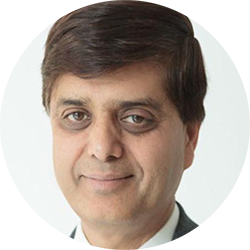08.11.2023 | Published by bit.bio

- Most advanced therapeutic candidate (bbHEP01), encapsulated allogeneic txHepatocytes for the treatment of acute liver failure, expected to enter clinical development in 2025 and generate initial clinical data in 2026.
- Scientific Advisory Board (SAB) expanded to include three global experts in cell therapy with world-leading experience in drug discovery, clinical trials, translational biology and cell manufacturing.
- bit.bio cell therapy pipeline consists of multiple txCellsTM with potential to address significant unmet need across a range of therapeutic areas, including metabolism and endocrinology, immunology and neurology.
CAMBRIDGE, UK, 08:00, 8 November 2023: bit.bio, the company coding human cells for novel cures, today announced its cell therapy pipeline and declared its lead cell therapy candidate as it prepares to enter clinical development in 2025. The company also announced three key additions to its SAB.
bit.bio’s lead cell therapy candidate (bbHEP01) is in development as a treatment for patients suffering from acute liver failure (ALF) and acute-on-chronic liver failure (ACLF), considered life-threatening liver conditions with high mortality. bbHEP01 consists of encapsulated allogeneic induced hepatocyte-like cells (txHepatocytes) produced by bit.bio’s opti-oxTM precision cell programming technology. The product is designed to provide transient liver function support, allowing native liver recovery or providing a bridge to transplant. This approach builds on current preclinical and clinical data demonstrating the feasibility and potential benefit of encapsulated donor-derived hepatocyte cell therapy1-5.
A key challenge for the development of hepatocyte cell therapies is access to liver cells of sufficient quality and quantity. bit.bio’s precision cell programming technology opti-ox solves this bottleneck by providing a consistent and scalable supply of highly functional txHepatocytes. Initial clinical data are expected in 2026.
“bit.bio’s mission is to democratise access to cell therapies. Our growing portfolio of therapeutic bit.bio txCells will enable a broad pipeline of regenerative and immune cell therapies, which we will develop either independently or in collaboration with external partners. I’m excited to welcome Drs. Katy Rezvani, Anil Dhawan and Loïc Vincent to our SAB. Drawing on the combined expertise of our expanded SAB, we will proceed rapidly and thoughtfully, taking a risk-based approach. We will focus on areas of high unmet medical need where clinical risk has been mitigated by prior clinical studies. Our lead development candidate in acute liver failure exemplifies this approach.”
 Mark KotterCo-founder and CEO, bit.bio
Mark KotterCo-founder and CEO, bit.bio
Beyond bbHEP01 and additional opportunities in txHepatocyte cell therapy, bit.bio today also announced its broader therapeutic cell pipeline which includes pancreatic islet cells, GABAergic neurons and immune cells such as myeloid and natural killer (NK) cells. Each cell type has the potential to give rise to multiple product candidates, for example by using different cell product delivery methods, engineering modifications, or therapeutic targets. Initial development areas for these cell types include metabolism and endocrinology, immunology, and neurology.
bit.bio intends to balance internal development and partnered development opportunities to advance its pipeline. Collaborations, such as the recent announcement with BlueRock Therapeutics focused on regulatory T cell (Treg) based cell therapies, will form an important aspect of the company’s cell therapy development strategy.
The bit.bio SAB is chaired by stem cell pioneer Roger Pedersen PhD, and includes cell reprogramming visionary Marius Wernig PhD and world-renowned expert in artificial intelligence and machine learning Thore Graepel PhD. The three new members of the SAB announced today are:
- Anil Dhawan MBBS, MD, FRCPCH - liver cell therapy expert and Professor in Paediatric Hepatology at King’s College Hospital in London with a special interest in liver cell transplantation.
- Katy Rezvani MD, PhD - immune-oncology pioneer and Professor of Stem Cell Transplantation & Cellular Therapy at The University of Texas MD Anderson Cancer Center.
- Loïc Vincent PhD - oncology scientist with more than 20 years of biotech and pharma experience, and currently Chief Scientific Officer at Affini-T Therapeutics.
“With its unique precision cell programming technology, bit.bio has the solution to the key problem for cell based therapies - namely access to an affordable, scalable and consistent supply of human cells. I am so excited that bit.bio’s lead programme builds on our previous work in liver disease, and I am looking forward to working with the bit.bio team to develop a life-saving treatment to the thousands of ALF and ACLF patients that so desperately need it.”
 Anil Dhawan MBBS, MD, FRCPCHbit.bio SAB member
Anil Dhawan MBBS, MD, FRCPCHbit.bio SAB member
SAB member biographies:
Anil Dhawan
Professor Anil Dhawan, MBBS, MD, FRCPCH is a Consultant in Paediatric Hepatology at King’s College Hospital in London, UK, with a special interest in liver cell transplantation for liver based metabolic defects and acute liver failure. Prof Dhawan is the Director of King’s Cell Therapy Unit. He is well known internationally and has held board level appointments with the European Society of Paediatric Gastroenterology, Hepatology and Nutrition, International Liver Transplantation Society and International Cell and Regenerative Society and Transplantation Society. He is also the Director for Research and Development, King’s College Hospital, London. He has 421 peer reviewed publications, H Index of 77 and over 22,000 citations.
Katy Rezvani
Dr. Katy Rezvani is a Professor of Stem Cell Transplantation & Cellular Therapy at The University of Texas MD Anderson Cancer Center, where she serves as the Sally Cooper Murray Chair in Cancer Research, chief of the section for cellular therapy, director of translational research, and medical director of the GMP Facility. She also serves as executive director of MD Anderson's Adoptive Cell Therapy Platform. She leads a research lab with a focus on NK cell biology and developing novel NK cell engineering strategies for cancer, with the aim of translating these discoveries to the clinic. Dr. Rezvani completed her medical training at University College London, England and her PhD at Imperial College London. She completed her training in immunology and transplantation biology at the National Institutes of Health, Bethesda, MD. In addition, she has co-authored over 200 hundred peer-reviewed publications and has received multiple prizes and awards.
Loïc Vincent
Loïc Vincent, PhD, is Chief Scientific Officer at Affini-T Therapeutics, independent director of the Board of Directors at Alaya.bio and member of the Scientific Advisory Board at General Inception. He is an oncology scientist with more than 20 years’ international experience in academia/biotech/pharma industry, dedicated to advancing transformative therapies to patients suffering from cancer. Previously, Loïc was the Head of Takeda Oncology Drug Discovery Unit and Immunology Unit, responsible for building the Immuno-Oncology portfolio with a global network of outstanding biotech and academic collaborators, and for leading Takeda Cell Therapy Discovery. During his career, Loïc’s teams advanced more than 20 oncology drugs in the clinic based on various therapeutic modalities including small molecules, biologics, oncolytic viruses and cell therapies. Loïc is author and co-author of more than 30 peer-reviewed publications, and more than 80 poster and oral presentations.
References
- Dhawan et al. Alginate microencapsulated human hepatocytes for the treatment of acute liver failure in children. J Hepatology 2020;72: 877-884. https://pubmed.ncbi.nlm.nih.gov/31843649/
- Mai G, Nguyen T, Morel P, Mei J, Andres A, Bosco D, et al. Treatment of fulminant liver failure by transplantation of microencapsulated primary or immortalized xenogeneic hepatocytes. Xenotransplantation 2005;12:457–464. https://pubmed.ncbi.nlm.nih.gov/16202069/
- Mei J, Sgroi A, Mai G, Baertschiger R, Gonelle-Gispert C, Serre-Beinier V, et al. Improved survival of fulminant liver failure by transplantation of microencapsulated cryopreserved porcine hepatocytes in mice. Cell Transplant 2009;18:101–110. https://pubmed.ncbi.nlm.nih.gov/19476213/
- Sgroi A, Mai G, Morel P, Baertschiger R, Gonelle-Gispert C, Serre-Beinier V, et al. Transplantation of encapsulated hepatocytes during acute liver failure improves survival without stimulating native liver regeneration. Cell Transplant 2011;20:1791–1803. https://pubmed.ncbi.nlm.nih.gov/21396154/
- Umehara Y, Hakamada K, Seino K, Aoki K, Toyoki Y, Sasaki M. Improved survival and ammonia metabolism by intraperitoneal transplantation of microencapsulated hepatocytes in totally hepatectomized rats. Surgery 2001;130:513–520. https://pubmed.ncbi.nlm.nih.gov/11562677/